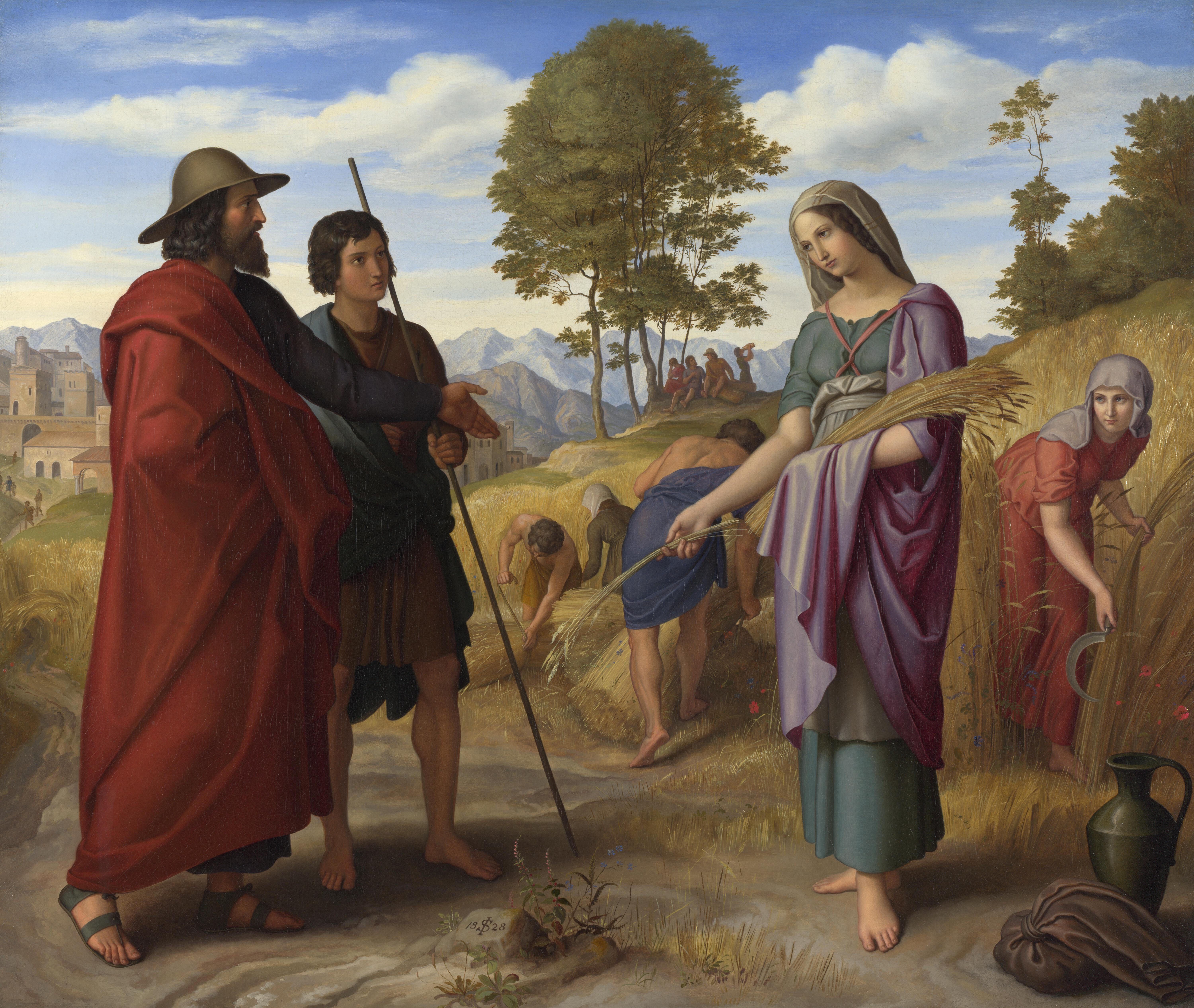Well, I know that everyone probably looks at that title and knows exactly what I’ll be writing about today, but perhaps I should explain it for the very few who might be puzzled by it. (This is my recognition that I’m writing about something arcane. My blog, my rules.)
Ruth, of course, refers to the Book of Ruth, which I read last week. It’s an important book, establishing King David’s ancestry and giving us a glimpse of life under the Judges. (The Book of Judges really muddles the waters, making life in pre-monarchy Israel look really chaotic and violent.)
The book also shows us that the understanding of the Law has changed somewhat since the days of Deuteronomy. For instance, Ruth is from Moab, yet becomes the ancestor of David. The Law specifically forbade Moabites from entering the Image may be NSFW.
Clik here to view. assembly of the Lord:
assembly of the Lord:
Deuteronomy 23:3 (ESV)
No Ammonite or Moabite may enter the assembly of the LORD. Even to the tenth generation, none of them may enter the assembly of the LORD forever
(BTW, I think the apparent contradiction can be explained in that Boaz was an Israelite, and since the father’s lineage is most important, David’s heritage would be considered Israelite. Just a guess, though.)
But the really interesting difference in the practice of the Law, to me (and I understand how this could totally not be interesting to almost anyone else), is the difference in the practice of Levirate Marriage.
And what is Levirate Marriage, you ask? Well, it goes way back to the whole Er/Onan/Shelah/Judah/Tamar thing in Genesis 38:
Genesis 38, the whole Judah and Tamar thing (New Revised Condensed Seth Version)
Er marries Tamar but is struck dead by God, leaving her childless. Judah (Er’s father) instructs Onan (Er’s brother) to marry Tamar and raise up children for his brother. Onan disobeys and earns the same fate as Big Bro. Judah, worried that Tamar will be the death of all his sons, doesn’t give her Shelah. So, she poses as a prostitute and seduces Judah (recently widowed). She gets pregnant.
So that’s the germ of the matter, and it’s later encoded into the Law in Deuteronomy 25:
Deuteronomy 25:5-6 (ESV)
5 If brothers dwell together, and one of them dies and has no son, the wife of the dead man shall not be married outside the family to a stranger. Her husband’s brother shall go in to her and take her as his wife and perform the duty of a husband’s brother to her. 6 And the first son whom she bears shall succeed to the name of his dead brother, that his name may not be blotted out of Israel.
(The practice was evidently still prescribed in New Testament times, given that the Sadducees used it in their famous question to Jesus about the resurrection.)
But what if the brother doesn’t want to marry his sister-in-law? Well, then he gets publicly humiliated:
Deuteronomy 25:8-9 (ESV)
8 Then the elders of his city shall call him and speak to him, and if he persists, saying, 'I do not wish to take her,' 9 then his brother’s wife shall go up to him in the presence of the elders and pull his sandal off his foot and spit in his face. And she shall answer and say, 'So shall it be done to the man who does not build up his brother’s house.'
And now you’re probably wondering what this has to do with Ruth, right? Well, it’s pointed out in Ruth that Boaz is a “redeemer,” which is the Hebrew word ga’al (or go’el). So he is in line to redeem Naomi’s property, including Ruth. He’s essentially taking the role of the brother in the Deuteronomy 25 law.
(Fun fact: ga’al is also the Avenger of Blood who is supposed to carry out vengeance for pre-meditated murder. So it wasn’t all inheriting land and marrying widows.)
Of course, Boaz isn’t the closest relative, so he sort of tricks the closer guy into giving up his claim. And what’s the symbol of giving up his claim?
Ruth 4:7-8 (ESV)
7 Now this was the custom in former times in Israel concerning redeeming and exchanging: to confirm a transaction, the one drew off his sandal and gave it to the other, and this was the manner of attesting in Israel. 8 So when the redeemer said to Boaz, "Buy it for yourself," he drew off his sandal.
So I guess what I’m wondering here is this: Is this “custom” a corruption of the original Levirate laws? Or is it something related but different, given that we’re not looking at brother/brother interaction?
And my answer? Well, I’m not really sure. I think it’s kind of both. It’s an extension of the broader redemption laws, and borrows from the Levirate law. (But I’m far from an expert here.)
Oh, right, I’m supposed to explain those two funky words in the title. Well, here it is:
Yibbum – Levirate marriage. I’m shocked it hasn’t come up in our word-of-the-day thing.
Halizah – The ceremony by which a widow and her husband’s brother could avoid marrying. (The shoe-removal and speech.)
Interestingly, Wikipedia informs me (and how could it be wrong?) that the Rabbis favored Halizah because of the general proscription against a man marrying his brother’s wife.
Next week, I’ll reveal new evidence that Jephthah did not sacrifice his daughter.